People with diabetes
For people with diabetes, drinking honey, lemon, and ginger regularly can cause the body to fall into a state of blood sugar imbalance. If they still want to use it, they should consult a nutritionist and only drink a very small amount, avoiding drinking it when hungry.
People with stomach disease
Honey lemon ginger drink has a sour taste and strong acidity due to the lemon, which can easily stimulate the stomach to secrete more gastric juice than normal.
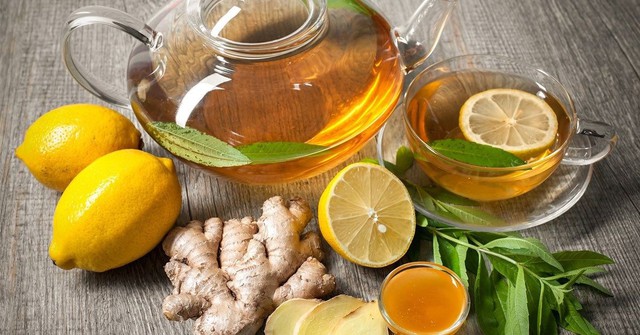
Honey lemon ginger drink has a sour taste and strong acidity due to the lemon, which can easily stimulate the stomach to secrete more gastric juice than normal.
People with ulcers, reflux, or gastritis may experience burning pain, heartburn, or bloating after drinking it. Additionally, ginger is warming, making the inflamed lining more sensitive, making symptoms worse if consumed regularly.
Children under 1 year old
Children under 12 months of age should never consume honey, whether diluted or cooked. Honey may contain spores of the bacteria Clostridium botulinum, which can cause serious neurotoxicity in infants.
The child's digestive system at this stage is not yet able to resist toxins, so even a small amount can lead to serious, even life-threatening conditions.
Pregnant and lactating women
Many pregnant women have the habit of using honey, lemon, and ginger to reduce nausea, morning sickness, or increase resistance, but this is not always appropriate. Ginger, if used regularly or in high doses, can stimulate uterine contractions, especially in the early stages of pregnancy, causing pregnant women to feel tired, painful, or even at risk of miscarriage if abused.
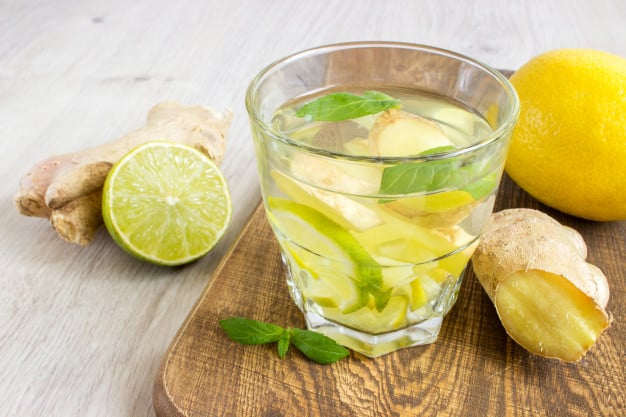
Many pregnant women have the habit of using honey, lemon, and ginger to reduce nausea, morning sickness, or increase resistance, but this is not always appropriate.
In addition, lemon is highly acidic, which can easily cause heartburn or stomach irritation in pregnant women with sensitive digestive systems. Breastfeeding women should also be cautious and consult a doctor.
People who are allergic to any of the ingredients such as lemon, ginger, honey or pollen
This is a basic rule for any food. If you have a history of allergies to lemon (e.g., citrus allergies), to ginger, or some people with sensitive constitutions are prone to allergies to honey, especially when there are residual pollen or natural enzymes in the product.
When taking it, they may experience symptoms such as sore throat, rash, facial swelling or difficulty breathing. This should not be taken lightly, because if continued use, the allergic reaction can become severe and lead to anaphylactic shock if not treated promptly.
People with high body temperature
Honey and ginger are both warming in nature, and when combined together can cause the body to generate more heat. People with a hot constitution, or who often have mouth ulcers, acne, or constipation may feel uncomfortable and have a dry throat after drinking it regularly.
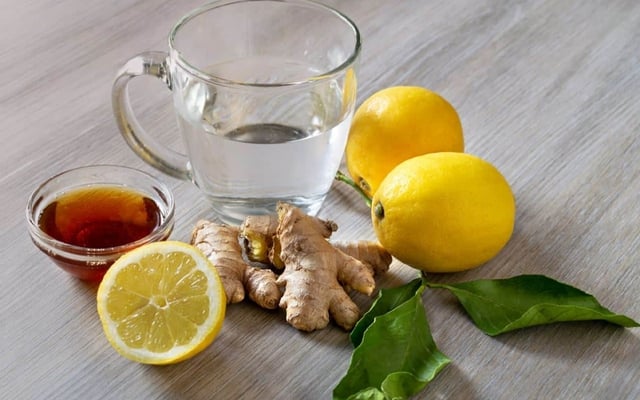
Caution should be exercised when using lemon on people with kidney stone problems (especially calcium oxalate stones) or impaired kidney function, because lemon contains a certain amount of citric acid and potassium, so consuming too much can put pressure on the kidneys.
In this case, it should be limited to use during hot weather or when the body is out of thermal balance to avoid the heat getting worse.
People who are taking certain medications or have other medical conditions
Honey, lemon, and ginger contain many biologically active substances that can interact with medications used to treat chronic diseases such as diabetes, cardiovascular disease, or antibiotics. These ingredients sometimes affect the absorption or reduce the effectiveness of the medication being used.
People undergoing long-term medication treatment should consult a doctor or health professional before taking it to avoid unwanted side effects.
Caution should be exercised when using lemon on people with kidney stone problems (especially calcium oxalate stones) or impaired kidney function, because lemon contains a certain amount of citric acid and potassium, so consuming too much can put pressure on the kidneys.
READ MORE:
Source: https://giadinh.suckhoedoisong.vn/loai-thuc-uong-duoc-coi-trong-uong-hang-ngay-nay-ai-khong-nen-dung-172251119201355659.htm



![[Photo] President Luong Cuong receives President of the Senate of the Czech Republic Milos Vystrcil](/_next/image?url=https%3A%2F%2Fvphoto.vietnam.vn%2Fthumb%2F1200x675%2Fvietnam%2Fresource%2FIMAGE%2F2025%2F11%2F20%2F1763629737266_ndo_br_1-jpg.webp&w=3840&q=75)


![[Photo] National Assembly Chairman Tran Thanh Man holds talks with South Korean National Assembly Chairman Woo Won Shik](/_next/image?url=https%3A%2F%2Fvphoto.vietnam.vn%2Fthumb%2F1200x675%2Fvietnam%2Fresource%2FIMAGE%2F2025%2F11%2F20%2F1763629724919_hq-5175-jpg.webp&w=3840&q=75)
![[Photo] Lam Dong: Panoramic view of Lien Khuong waterfall rolling like never before](/_next/image?url=https%3A%2F%2Fvphoto.vietnam.vn%2Fthumb%2F1200x675%2Fvietnam%2Fresource%2FIMAGE%2F2025%2F11%2F20%2F1763633331783_lk7-jpg.webp&w=3840&q=75)












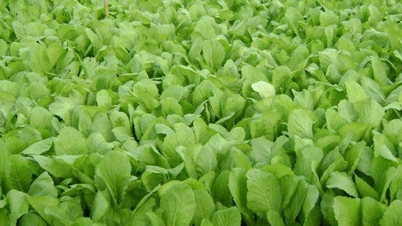



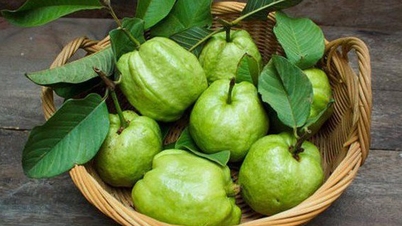


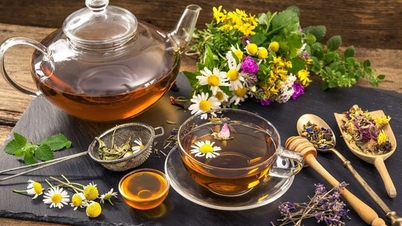




















































































Comment (0)